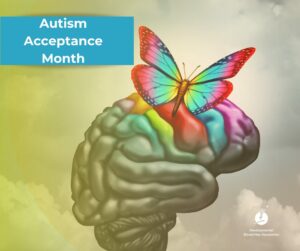February 26, 2020, is Pink Shirt Day and Developmental Disabilities Association would like to remind British Columbians that students with developmental disabilities are more likely to be bullied than their peers and we need to be more watchful in their protection and advocacy. A McMaster University study claims students with disabilities are especially vulnerable to being the targets of repeated aggression from their peers.
The recent viral story of a 9-year-old Australian boy with dwarfism being bullied at school has led the rallying cry for those getting behind the anti-bullying movement, including many Hollywood stars. The story, once again, sheds light on the need to protect vulnerable students.
“Kids who have developmental disabilities already face an uphill battle when enrolled in the public education system,” says DDA’s Executive Director Alanna Hendren. “When bullying happens it makes that process even more difficult and emotionally draining to go through. It’s important for parents and teachers to help these kids understand what bullying is and what it looks like so they can tell someone. It’s also important to let them know that it’s not their fault.”
For typically developed students, the Federal Government claims 47 per cent of parents in Canada report their children as being victims of bullying. In spite of that, DDA strongly believes in inclusive education for children with developmental disabilities and is proud of the educators and students of B.C. who are doing their part to create a community where everyone belongs.
A bully may victimize someone who they perceive as weaker than themselves or different in some way, which makes children with developmental disabilities easier to target. Because of a student’s developmental disability, bullying can last throughout their scholastic life. To make matters worse, the student may be unable to stand up for themselves.
One of the main issues with children who have developmental disabilities is they may struggle to understand certain communications such as sarcasm and non-verbal cues. The student may not even understand they are being bullied at all. This is where educators and students alike need to be aware and report anything they think might be perceived by typical students as bullying.
DDA understands, however, that children are not born to be bullies.
“When children victimize others, it’s often a symptom of something else and that they too need support,” adds Hendren. “Reporting bullies to parents and teachers can help them get the help they need.”



